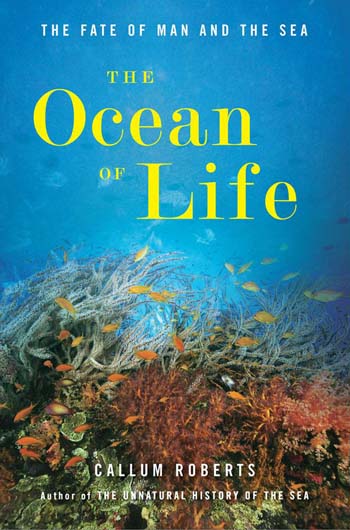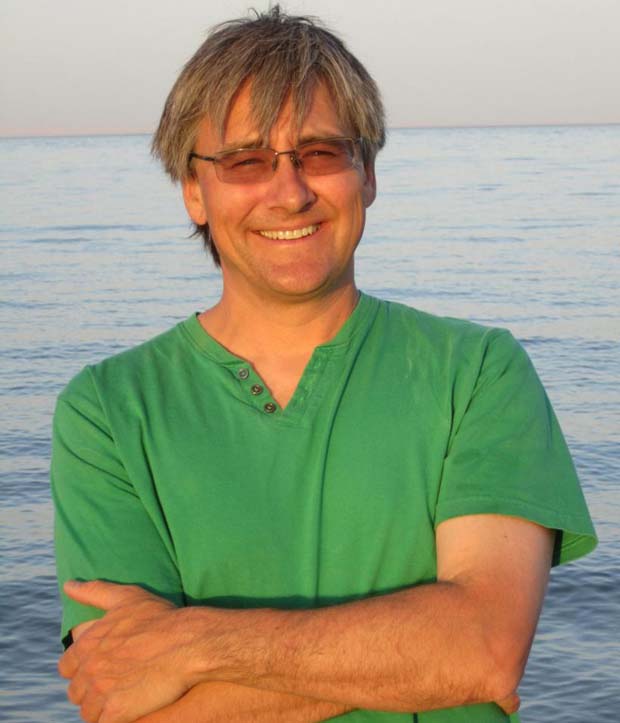 [dropcap]C[/dropcap]allum Roberts is a professor of marine conservation at the University of York in England and an author. His first book, The Unnatural History of the Sea, was published in 2007 and his second, The Ocean of Life (discussed here), was published in spring of 2012. The Ocean Portal team asked Callum five questions to learn more about why he writes and what we can do for the ocean:
[dropcap]C[/dropcap]allum Roberts is a professor of marine conservation at the University of York in England and an author. His first book, The Unnatural History of the Sea, was published in 2007 and his second, The Ocean of Life (discussed here), was published in spring of 2012. The Ocean Portal team asked Callum five questions to learn more about why he writes and what we can do for the ocean:
Ocean Portal Team (OP): The Ocean of Life: The Fate of Man and the Sea is your second book aimed at the general public and the human relationship with the ocean. How does this new book differ from The Unnatural History of the Sea?
 Callum Roberts (CR): In The Unnatural History of the Sea, I explored the effects of 1000 years of hunting and fishing on life in the oceans. Those effects have been much more pervasive and dramatic than most of us realize. Larger-bodied animals especially have suffered at our hands and previously-rich habitats have been altered beyond recognition by the collateral impacts of the slaughter. But I knew that I had only told a small part of the story of human relations with the sea.
Callum Roberts (CR): In The Unnatural History of the Sea, I explored the effects of 1000 years of hunting and fishing on life in the oceans. Those effects have been much more pervasive and dramatic than most of us realize. Larger-bodied animals especially have suffered at our hands and previously-rich habitats have been altered beyond recognition by the collateral impacts of the slaughter. But I knew that I had only told a small part of the story of human relations with the sea.
The oceans of today are changing faster and in more ways than at any time in human history and probably for many millions of years. The Ocean of Life takes up this bigger story. Marine life is increasingly affected by a potent cocktail of stresses from climate change, pollution, overfishing and globalization. These impacts are unprecedented in their intensity and scale and are taking us into the unknown. What became very clear to me in writing this book is that we are headed for disaster if we don’t take swift and decisive action to tackle the root causes of planetary change — in other words, our swelling population and dependence on energy from fossil fuel.
Because these forces are so hard to control, conditions for ocean life will get worse before they get better. Which means that we must manage the seas in ways that give them the strength and resilience to endure through the tough times ahead. In short, that means putting them on a fitness and detox regime that would see us rebuild the abundance and variety of life in the sea, while reducing local stresses like pollution.
OP: What was the most surprising thing you learned while researching your new book?
CR: The most eye-popping fact I learned concerned the life you cannot see rather than the giant whales and fish that attract most attention. A litre of crystal clear seawater contains four billion viruses. If you were to place all the viruses in the ocean side by side, they would form a thread 1/200th the thickness of the finest spider gossamer that would stretch out into space for 200 million LIGHT YEARS. It would pass by 60 galaxies and countless millions of stars.
To read complete story click here […]







